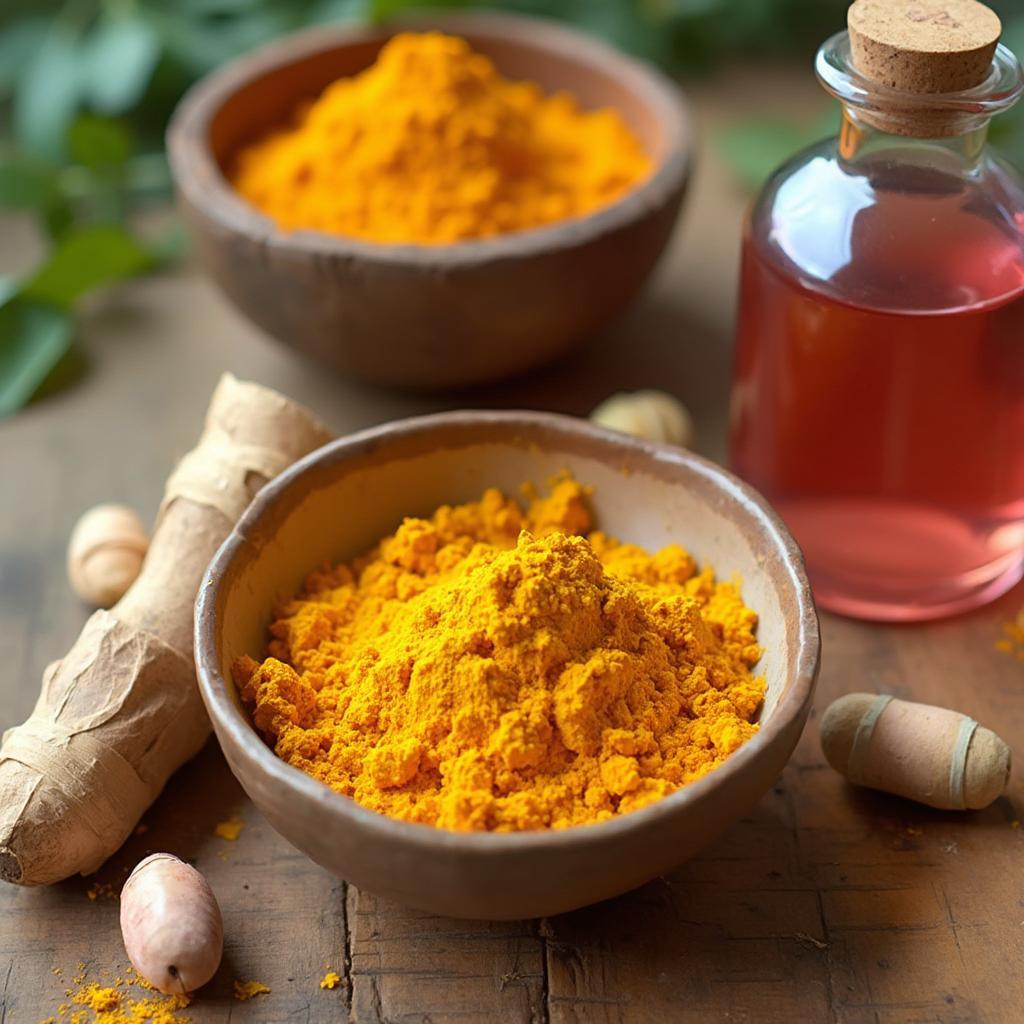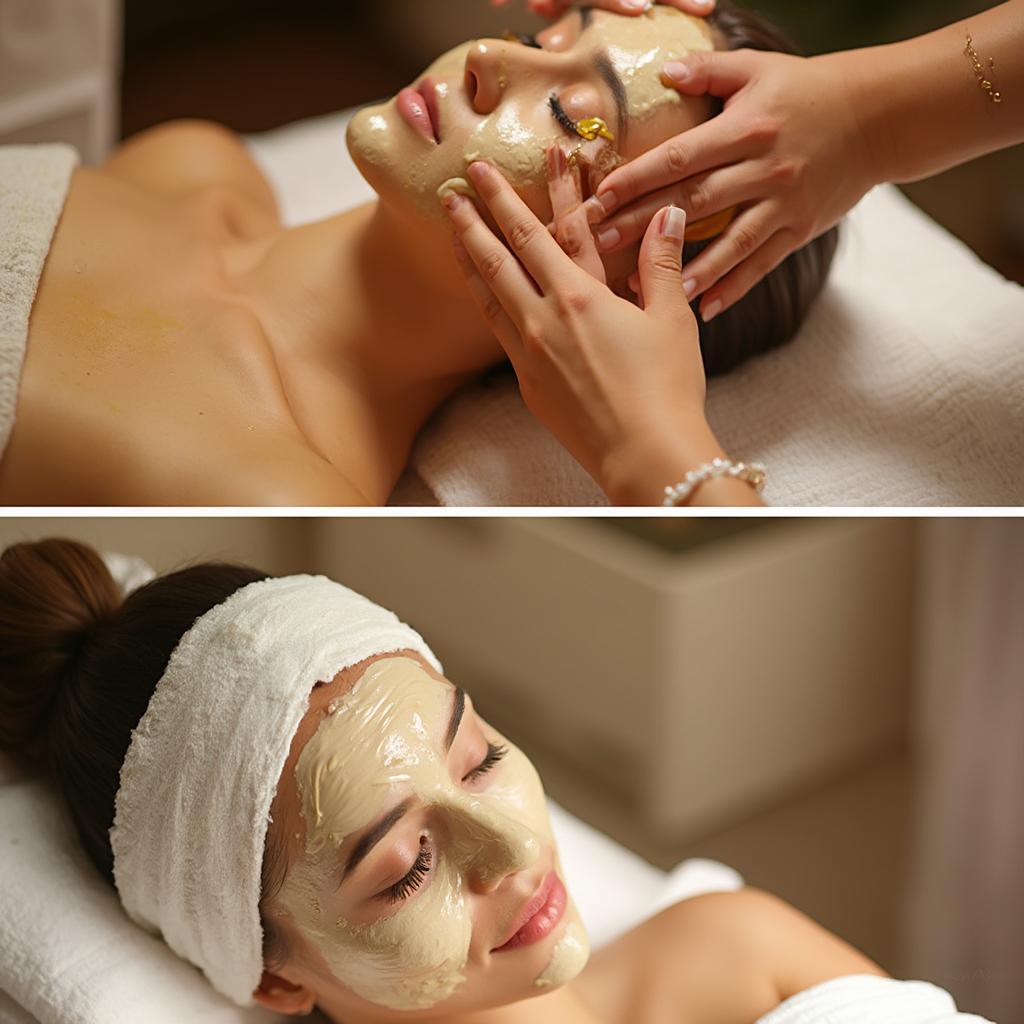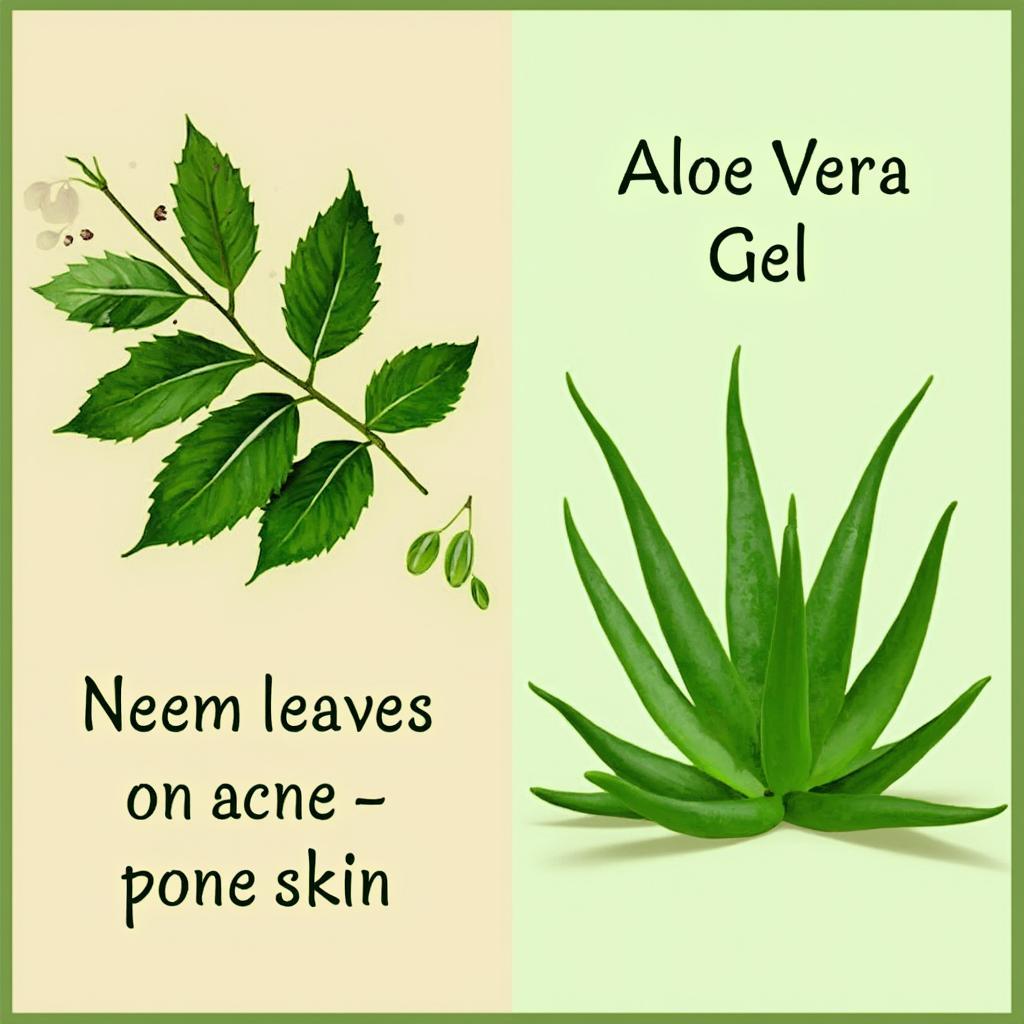Your cart is currently empty!

Traditional Indian Skin Care Tips: Unveiling Timeless Beauty Secrets
Traditional Indian Skin Care Tips have been passed down through generations, emphasizing natural ingredients and holistic practices. These time-tested methods offer a gentle yet effective approach to achieving radiant and healthy skin. This article explores the rich heritage of Indian skin care, revealing secrets to enhance your natural beauty. We will delve into specific ingredients, routines, and practices that can help you achieve a glowing complexion.
Harnessing the Power of Nature: Key Ingredients in Traditional Indian Skin Care
Traditional Indian skin care relies heavily on readily available natural ingredients, many of which you can find in your kitchen. Turmeric, known for its anti-inflammatory and antiseptic properties, is a staple in many Indian skincare recipes. Sandalwood, with its cooling and soothing effect, is another popular ingredient used to treat blemishes and improve skin tone. Other common ingredients include honey, rose water, neem, and aloe vera, each offering unique benefits for the skin. These natural remedies offer a gentle alternative to harsh chemicals often found in commercial products.
For smoother skin, consider some of the tips mentioned in smooth hair care tips in hindi.
One of the most fundamental traditional Indian skin care tips involves cleansing the skin with natural ingredients like besan (gram flour) or multani mitti (fuller’s earth). These ingredients gently exfoliate, remove impurities, and leave the skin feeling refreshed.
 Traditional Indian Skin Care Ingredients: Turmeric, Sandalwood, Honey, and Rosewater
Traditional Indian Skin Care Ingredients: Turmeric, Sandalwood, Honey, and Rosewater
Daily Rituals for Radiant Skin: Traditional Indian Skin Care Routines
Traditional Indian skin care routines often incorporate simple yet effective daily rituals. These rituals not only cleanse and nourish the skin but also promote overall well-being. A common practice involves oil massage, or abhyanga, which improves circulation and hydrates the skin. This is often followed by a gentle exfoliation using ubtan, a paste made from natural ingredients. Another essential step is the application of face masks tailored to specific skin types, using ingredients like yogurt, honey, or turmeric. These rituals, performed regularly, can significantly improve skin health and radiance.
Beyond the Surface: Holistic Approach to Indian Skin Care
Traditional Indian skin care extends beyond topical treatments. It emphasizes a holistic approach that integrates diet, lifestyle, and mental well-being. A balanced diet rich in fruits, vegetables, and whole grains is crucial for healthy skin. Regular exercise and stress management techniques like yoga and meditation also play a significant role in maintaining skin health. By addressing the root causes of skin problems, traditional Indian skin care promotes lasting beauty from within. Looking for more ayurvedic tips? Check out best ayurvedic skin care tips.
 Daily Indian Skin Care Rituals: Oil Massage and Ubtan Application
Daily Indian Skin Care Rituals: Oil Massage and Ubtan Application
Addressing Specific Skin Concerns: Targeted Traditional Indian Remedies
Traditional Indian skin care offers a wealth of remedies for specific skin concerns, from acne and blemishes to dryness and aging. For acne-prone skin, neem and turmeric are often recommended for their antibacterial and anti-inflammatory properties. Dry skin can benefit from the moisturizing effects of aloe vera and coconut oil. For anti-aging, sandalwood and saffron are known for their rejuvenating properties. These targeted remedies address individual skin needs, promoting healthy and vibrant skin. You can find more home remedies related information on skin care tips in hindi at home remedies and baby skin care tips home remedies in hindi.
Traditional Indian Skin Care for Different Skin Types
Traditional Indian skin care recognizes the unique needs of different skin types. For oily skin, ingredients like sandalwood and rose water help balance sebum production and prevent breakouts. Dry skin benefits from the nourishing properties of milk cream and honey. Sensitive skin can be soothed with aloe vera and cucumber. By tailoring the ingredients and routines to specific skin types, traditional Indian skin care ensures optimal results for everyone. Explore further hair care tips at home hindi for additional insights.
 Targeted Indian Skin Care Remedies: Neem for Acne and Aloe Vera for Dry Skin
Targeted Indian Skin Care Remedies: Neem for Acne and Aloe Vera for Dry Skin
Conclusion: Embrace the Wisdom of Traditional Indian Skin Care
Traditional Indian skin care tips offer a natural and effective path to radiant skin. By incorporating these time-tested practices and ingredients into your routine, you can unlock the secrets to timeless beauty. Embrace the wisdom of generations and discover the transformative power of traditional Indian skin care.
FAQs
- What are some common ingredients used in traditional Indian skin care?
- How often should I follow a traditional Indian skin care routine?
- Are traditional Indian skin care methods suitable for all skin types?
- Where can I find authentic Indian skin care ingredients?
- Can I combine traditional Indian skin care with modern skincare products?
- What are the benefits of using natural ingredients for skin care?
- Are there any specific dietary recommendations for healthy skin according to traditional Indian practices?
Need Assistance? Contact us via WhatsApp: +1(641)206-8880, or Email: [email protected]. Our customer service team is available 24/7.

Leave a Reply